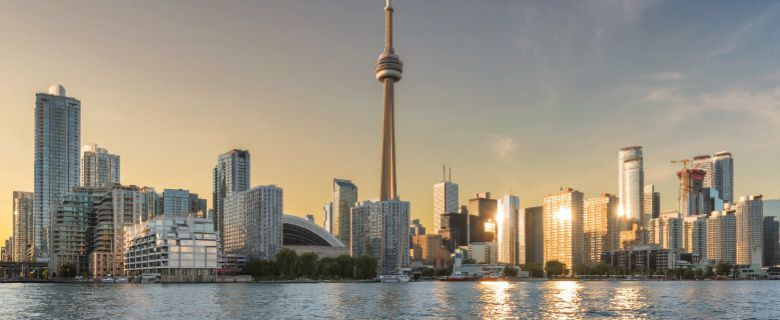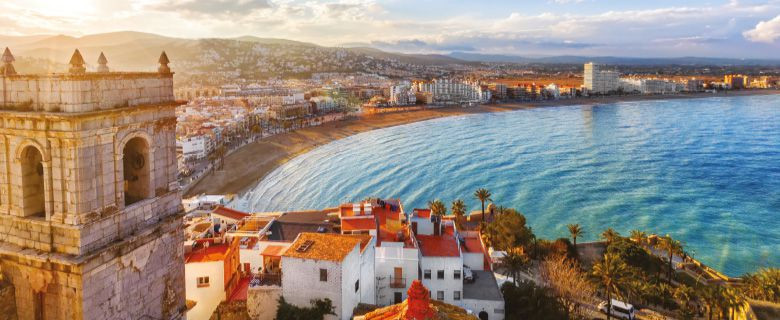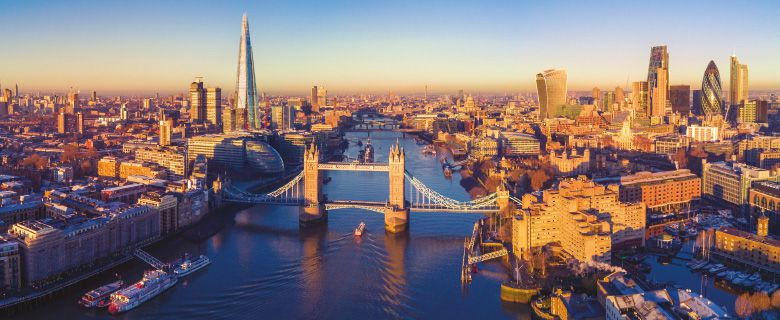Global Sustainability: A Holistic Response is Needed to Tackle Multiple Challenges
Charles Phillips
Read more
An innovative study analyzing over 150 data points across five wealth and sustainability parameters including population density, CO2 emissions per capita, achievement of the UN’s Sustainable Development Goals, and unique country wealth per capita data from New World Wealth. Featuring the G7 nations (advanced industrial economies in the Global North), the new BRICS plus Six grouping (representing major emerging economies in the Global South) and countries hosting investment migration programs, the report highlights residence and citizenship by investment as an effective mechanism to mitigate sustainability risks and improve climate resilience. Read expert insights here and the methodology here.
Read more
Read more
Read more



Sustainable development is a constitutional state goal in Austria. The SDGs play a core role in several nationwide strategies spanning climate and energy, economic development, health, youth and foreign trade. Austria performs well within categories related to prosperity, as well as peace (Goal 16), and partnerships (Goal 17). Among OECD countries Austria has one of the lowest income inequalities and highest participation rates in lifelong learning. The country has an ambitious net zero by 2040 target. More work is needed in addressing the gender pay gap and in issues related to ecological sustainability such as high consumption levels.
Austria ranked 5th out of 193 in the 2023 SDG Index. It was classed as ‘on track’ for gender equality and as ‘moderately improving’ for 11 of the goals. It was marked as ‘stagnating’ for 4 of the goals.
Find out more about residence by investment in Austria here.



Canada has developed specific plans and initiatives to address climate change, biodiversity conservation, and sustainable development. The Pan-Canadian Framework on Clean Growth and Climate Change is a notable example. To date, Canada has placed significant focus on SDG 1 (No Poverty), SDG 4 (Quality Education), SDG 5 (Gender Equality), SDG 13 (Climate Action), and SDG 17 (Partnerships for the Goals). Canada is seeking to accelerate progress for those left furthest behind, including Indigenous Peoples, racialized and religious minorities, 2SLGBTQI+ people, those with a disability, official language minority communities, and other groups in vulnerable situations.
Canada ranked 26th out of 193 in the 2023 SDG Index. It was classed as ‘on track’ for no poverty and as ‘moderately improving’ for 9 of the goals. It was marked as ‘stagnating’ for 7 of the goals.
Find out more about residence by investment in Canada here.



In recent years, sustainability principles have been increasingly mainstreamed across a wide range of sectors in Greece. The government has integrated sustainability and the SDGs into its national budgetary process. In recent years Greece has introduced a series of National Action Plans and Strategies that champion the principle of leaving no one behind in public policies and reform measures. This ranges from children’s rights to people with disabilities. The country has made notable progress towards meeting its net zero by 2050 targets.
Greece ranked 28th out of 193 in the 2023 SDG Index. It was classed as ‘on track’ for reduced inequalities and clean water and sanitation. It was classed as ‘moderately improving’ for 10 of the goals and ‘stagnating’ for 4 of the goals. It was marked as ‘decreasing’ for responsible consumption and production.
Find out more about residence by investment in Greece here.



Italy’s National Sustainable Development Strategy (NSDS) outlines its approach for achieving the SDGs. The strategy has a multilevel governance approach covering regions, autonomous provinces and metropolitan cities which serves to boost deeper integration of the SDGs. The strategy champions a system of well-being indicators for policymaking that move beyond traditional economic indicators. Italy’s recent progress in energy efficiency has put it on track for meeting its national emissions reduction targets. It has also succeeded in surpassing European Union industrial and urban waste recycling targets.
Italy ranked 24th out of 193 in the 2023 SDG Index. It was classed as ‘on track’ for no poverty and clean water and sanitation. It was classed as ‘moderately improving’ for 9 of the goals and ‘stagnating’ for 6 of the goals. It was marked as ‘decreasing’ for responsible consumption and production.
Find out more about residence by investment in Italy here.



Luxembourg’s National Plan for Sustainable Development has 10 priority areas of action for the implementation of the SDGs. This covers areas ranging from protection of biodiversity to the fight against social exclusion to the development of a sustainable finance ecosystem. Luxembourg has a participatory approach to sustainable development policy perusing regular public consultations. The country has made good progress in decoupling environmental pressures from economic growth and has ranked highly in environmental performance.
Luxembourg ranked 33rd out of 193 in the 2023 SDG Index. It was classed as ‘on track’ for no poverty, gender equality, and sustainable cities and communities. It was classed as ‘moderately improving’ for 6 of the goals and ‘stagnating’ for 7 of the goals.
Find out more about residence by investment in Luxembourg here.



New Zealand has a number of sustainability initiatives and strategies. To measure progress, it has developed a broader set of measures that move beyond purely economic metrics. This includes the Living Standards Framework (LSF) which puts sustainable intergenerational wellbeing at the centre of policy-making and the management of the country’s resources. The special status of the Māori indigenous people plays an important role in the country’s approach to sustainability. One of New Zealand’s notable environmental initiatives is the New Zealand Biodiversity Strategy which seeks to protect and restoring biodiversity. In 2023, New Zealand announced its largest emissions reduction project in history, transitioning from coal to renewable electricity at the country’s major steel plant.
New Zealand ranked 27th out of 193 in the 2023 SDG Index. It was classed as ‘on track’ for gender equality and as ‘moderately improving’ for 7 of the goals. It was marked as ‘stagnating’ for 8 of the goals.
Find out more about residence by investment in New Zealand here.



Significant steps were taken in 2022 towards aligning the SDGs with Portugal’s high-level strategies and initiatives. These include the Portugal 2030 Strategy, the 2022 National Reform Programme, the Major Options Plan for 2022–2026 and the Portuguese Cooperation Strategy 2030. Work as also been done to integrate the SDGs at a regional and local level, in scientific research, and in strategic business plans. Portugal has set ambitious targets for increasing the share of renewables in its energy mix. In 2023 the country more than doubled its 2030 goals for installed capacity of solar energy and green hydrogen production capacity. It has also been considering moving its net zero target forward to 2045.
Portugal ranked 18th out of 193 in the 2023 SDG Index. It was classed as ‘on track’ for no poverty, gender equality, and clean water and sanitation. It was classed as ‘moderately improving’ for 10 of the goals and as ‘stagnating’ for life on land.
Find out more about residence by investment in Portugal here.



Spain’s framework for action for the SDGs is outlined in its Sustainable Development Strategy 2030 (EDS 2030). It covers issues affecting women and children, effective access to social rights, and the generation of quality employment. Spain is a leader in renewable energy with the second largest installed capacity of wind power in Europe. With Major investment, McKinsey has estimated Spain could become a regional leader and clean-energy hub under a net-zero scenario. Capital expenditures of EUR 2.5 trillion for green technologies and processes by 2050 would be needed to achieve this.
Spain ranked 16th out of 193 in the 2023 SDG Index. It was classed as ‘on track’ for gender equality and as ‘moderately improving’ for 13 of the goals. It was marked as ‘stagnating’ for 3 of the goals.
Find out more about residence by investment in Spain here.



Switzerland has a 2030 Sustainable Development Strategy (2030 SDS). At the heart of this strategy is a commitment to ensure the prosperity and well-being of society while leaving no one behind. The country is known for its strong commitment to environmental conservation. Switzerland is well on its way to achieving education, healthcare, infrastructure, and competitiveness targets. Priority areas for further progress include sustainable consumption and sustainable production including transformation towards a sustainable food system. Other areas include enhanced climate action, reducing energy consumption, biodiversity preservation and restoration, and enhancing equal opportunities and social cohesion.
Switzerland ranked 15th out of 193 in the 2023 SDG Index. It was classed as ‘on track’ for decent work and economic growth, clean water and sanitation, and responsible production and consumption. It was classed as ‘moderately improving’ for 7 of the goals. It was marked as ‘stagnating’ for 5 of the goals and ‘decreasing’ for reduced inequalities.
Find out more about residence by investment in Switzerland here.



The UK has various sustainability strategies and initiatives in place and is committed to ensuring that the SDGs are fully embedded in planned activity of each government department. The 25 Year Environment Plan outlines goals for improving air and water quality, reducing plastic waste, and enhancing biodiversity. The Green Finance Institute and the Green Finance Strategy are elements of the UK's efforts to align financial systems with sustainability goals. The UK was the first country to establish a long-term legally binding framework to tackle climate change through the 2008 Climate Change Act. Some challenges remain since the UK government watered down some of the country’s interim net zero-related targets in 2023.
The UK ranked 11th out of 193 in the 2023 SDG Index. It was classed as ‘on track’ for decent work and economic growth, and as ‘moderately improving’ for 10 of the goals. It was marked as ‘stagnating’ for 5 of the goals and ‘decreasing’ for no poverty.
Find out more about residence by investment in the UK here.
The Henley Wealth and Sustainability Report is an innovative study that includes unique wealth per capita data from global wealth intelligence firm New World Wealth for 31 countries including the G7 nations, BRICS member states, as well as the six new countries that will join the bloc in January 2024 (Argentina, Ethiopia, Saudi Arabia, Iran, Egypt and the UAE), and a selection of 19 countries that host investment migration programs, which enable investors to acquire residence or citizenship in return for making a significant contribution to the economy.
The G7 brings together seven of the world’s most advanced industrial economies based in the Global North while the new BRICS configuration, referred to as BRICS plus Six, represents major emerging economies in the Global South. Both blocs represent a significant share of the global economy and global population, and both aim to tackle pervasive global issues, many of which impact on sustainable development, and worldwide crises such as climate change.
Alongside their wealth tiers and wealth per capita, the report presents each country’s overall score in the SDG Index, a tool published in the Sustainable Development Report 2023 that is widely used to assess country performance on the UN Agenda 2030 and the Sustainable Development Goals (SDGs), as well as World Bank population density data, and CO2 emissions data.
The report uses 155 data points to assess average levels of prosperity in the range of countries as well as providing a snapshot of how they are performing in terms of achieving the SDGs at the halfway mark to 2030, and honing in on their population density and CO2 emissions per capita (indicating the average person’s emissions of CO2), both of which are key drivers of climate change. Read more
|
Wealth tier |
Wealth per capita |
|
Very high |
Over USD 300,000 |
|
High |
USD 50,000–USD 300,000 |
|
Middle-high |
USD 30,000–USD 50,000 |
|
Middle |
USD 10,000–USD 30,000 |
|
Low |
USD 3,000–USD 10,000 |
|
Very low |
Under USD 3,000 |
Wealth per capita is arguably the best indicator of the long-term financial health and sustainability of an economy. For our purposes ‘wealth’ includes only an individual’s liquid investable assets (namely, listed company holdings, cash, and residential property).
We consider wealth to be a far better measure of the financial health of an economy than GDP. The reasons for this include:
Wealth figures, on the other hand, have none of these limitations, making them a far more accurate gauge of the financial health of an economy than its GDP figures.
The countries with the highest wealth per capita worldwide include the likes of Luxembourg, Switzerland, Australia, Singapore, USA, and Canada.
Source: New World Wealth
The SDG Index scores provide insight into how countries are faring in terms of achieving the SDGs. They are published in the Sustainable Development Report 2023, which is the eighth edition of the annual assessment of progress for all UN member states towards the SDGs. The authors of the report are Sachs, J.D., Lafortune, G., Fuller, G., and Drumm, E. (2023). Implementing the SDG Stimulus. Sustainable Development Report 2023. Dublin: Dublin University Press, 2023, and an open access online version of this work is published at doi.org/10.25546/102924 under a Creative Commons Open Access license CC-BY-NC-SA 4.0.
Population density has an impact on our environment and natural resources. These pressures can lead to deforestation, result in overcrowding, and could lead to the destruction of our planet’s delicate ecosystem. Furthermore, growing populations tend to use large amounts of nonrenewable resources such as coal, oil, and timber.
CO2 emissions is a key variable in any climate change study. The CO2 per capita figures indicate the average emissions per person in a country. Reducing the carbon footprint is an essential step in slowing climate change and creating a more sustainable future.
Note: CO2 emissions per capita is useful when comparing high income markets where the entire population has access to energy. However, it has limitations when comparing emerging markets where access to energy is lower. The figures are based on calculation using two World Bank data for two variables: CO2 emissions (kt) and Population, total.
New World Wealth is currently the only known independent wealth research firm systematically tracking global wealth migration trends between countries and cities. The firm was established in 2013 and has been tracking the movements and spending habits of the world’s wealthiest people for almost a decade.
New World Wealth has an impressive track record in providing robust, reliable wealth data and insights for key publications, such as Knight Frank’s Wealth Report, AfrAsia Bank’s Global Wealth Migration Review, and Henley & Partners’ Africa Wealth Report, The Centi-Millionaire Report, and USA Wealth Report, as well as the Henley Private Wealth Migration Dashboard. The firm’s reports and findings have been referenced by the Australian and UK governments, as well as by global news outlets such as the BBC, Bloomberg, CNN, the Financial Times, Forbes, the New York Times, and Robb Report.
New World Wealth tracks the movements of over 150,000 high-net-worth individuals in its in-house database, with a special focus on individuals with over USD 30 million in listed company holdings. The database is mainly focused on company founders and affluent individuals from high value companies with the following work titles: chairperson, CEO, president, director, and managing partner.
Note: It should be noted that New World Wealth never discloses the names of the individuals in its database, which it uses purely for in-house statistical studies.
Disclaimer: All the data available in the Henley Wealth and Sustainability Report other than the SDG Index data and the World Bank data is licensed by New World Wealth. Henley & Partners Group Holdings Ltd is not responsible for its correctness. The data posted in the Henley Wealth and Sustainability Report is freely accessible for private non-commercial use only.
© 2023 Henley & Partners. All rights reserved. The H&P monogram and Henley & Partners logo and related brand assets are the exclusively owned or licensed trademarks, service marks, and logos of Henley & Partners. All other trademarks, service marks, and logos used in this report are the trademarks, service marks, and logos of their respective owners. No part of this report may be reproduced in any form or by any means without the prior written permission of Henley & Partners. Although the material contained in this report was prepared based on information from public and private sources that Henley & Partners believes to be reliable, no representation, warranty, or undertaking, stated or implied, is given as to the accuracy of the information contained herein, and Henley & Partners expressly disclaims any liability for the accuracy and completeness of information contained herein.
This report is distributed for general informational and educational purposes only and is not intended to constitute legal, tax, accounting, or investment advice. It should not form the basis of any decision. The information contained in this report is not, and shall not constitute an offer to sell, a solicitation of an offer to buy or an offer to purchase any securities, nor should it be deemed to be an offer, or a solicitation of an offer, to purchase or sell any investment product or service. Henley & Partners is not responsible for the content of websites and information resources that may be referenced in this report. The information contained in this report is believed to be accurate as of the date of publication, but is subject to change without notice. Henley & Partners does not have any obligation to provide revisions in the event of changed circumstances. Henley & Partners and its affiliates, employees, and agents shall not be liable for any liability or loss whatsoever, including but not limited to direct, indirect, special, incidental, or consequential damages, arising out of or in connection with the use or reliance on the information contained in this report. The information in this report is provided “as is” and Henley & Partners makes no representations or warranties of any kind, express or implied, about the completeness, accuracy, reliability, suitability, or availability with respect to the information contained in this report for any purpose.
The Henley Wealth and Sustainability Report was published on 28 November 2023.
Henley & Partners assists international clients in obtaining residence and citizenship under the respective programs. Contact us to arrange an initial private consultation.

Have one of our qualified advisors contact you today.
We use cookies to give you the best possible experience. Click 'Accept all' to proceed as specified, or click 'Allow selection' to choose the types of cookies you will accept. For more information, please visit our Cookie Policy.